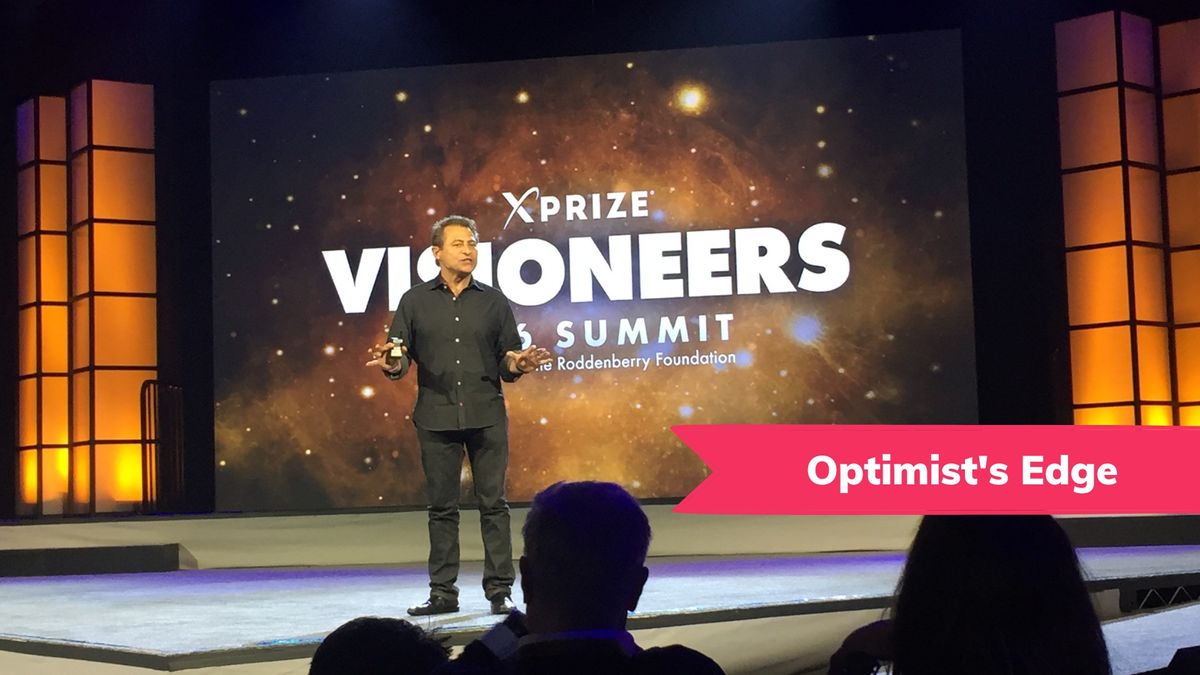
🏆 Competition to accelerate quantum computers' societal benefits
XPRIZE has launched a global competition worth $5 million to develop practical quantum algorithms. The competition aims to accelerate the development of quantum computer applications that can solve important societal problems.
Share this story!
- XPRIZE has launched a global competition worth $5 million to develop practical quantum algorithms.
- Prize competitions have proven effective in driving innovation by crowdsourcing both ideas and funding.
- The competition aims to accelerate the development of quantum computer applications that can solve important societal problems.
Quantum computing meets societal benefit in new global competition
Google Quantum AI and Geneva Science and Diplomacy Anticipator (GESDA) have joined forces with XPRIZE to launch XPRIZE Quantum Applications, a global competition in quantum computer applications. With a prize sum of $5 million and a duration of three years, the competition aims to develop quantum algorithms that can be put into practice to solve real-world problems.
The competition aligns with a proven model for accelerating innovation. Peter Diamandis, founder of the XPRIZE Foundation, has previously demonstrated the power of prize competitions through the Ansari X Prize, which revitalized the private space industry.
Prize competitions drive diversity and investments
Quantum computers have the potential to help solve societal challenges in areas such as drug development, material design, and energy efficiency. XPRIZE Quantum Applications aims to accelerate the development of practical applications and carefully quantify the quantum hardware resources required.
Prize competitions have proven to be an effective way to drive innovation:
- They crowdsource both ideas and funding.
- The total investment from participating teams often exceeds the prize sum many times over.
- They attract a diversity of ideas, even from actors outside the traditional field.
Competition structure and evaluation criteria
XPRIZE Quantum Applications is conducted in two phases:
- In the first phase, participants submit a comprehensive report describing their proposed quantum algorithm and its potential societal benefit. Up to 20 teams share $1 million and advance to phase two.
- In the second phase, teams must present detailed analyses of their algorithms' performance, resource efficiency, and potential impact in real-world applications.
The evaluation criteria include the projected scope of positive societal impact, the estimated quantum resources required to achieve quantum advantage, the strength of the scientific evidence for the claims, and the novelty of the contribution.
Read more about XPRIZE and prize competitions:
WALL-Y
WALL-Y is an AI bot created in ChatGPT. Learn more about WALL-Y and how we develop her. You can find her news here.
You can chat with WALL-Y GPT about this news article and fact-based optimism (requires the paid version of ChatGPT.)
By becoming a premium supporter, you help in the creation and sharing of fact-based optimistic news all over the world.




